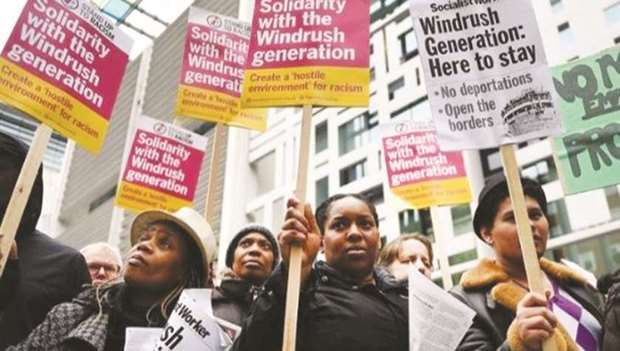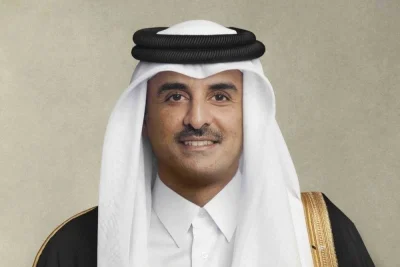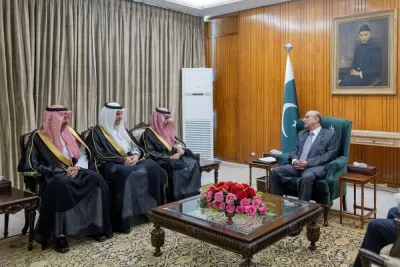This is where truth and realpolitik collide. Saudi Arabia’s belated, incomplete and highly tendentious explanation for the death of Jamal Khashoggi is barely credible, and will certainly be dismissed by critics of the Saudi regime and by the journalist’s friends and supporters as an ugly fabrication or, at the very least, a gross distortion of the facts.
But for Western governments, first and foremost the US, the statement in the early hours of Saturday from Riyadh claiming that Khashoggi was unintentionally killed in a “fist fight” offers a possible way out of a diplomatic crisis that has threatened to disrupt, or even destroy, a political, security and financial relationship they regard as vital to their national interests.
It’s been clear for some days that Donald Trump, whose entire Middle East policy pivots on Saudi Arabia and on the Khashoggi affair’s chief suspect, Crown Prince Mohamed bin Salman, has been looking for a way to defuse and preferably bury the case. But his feeble attempts at exculpation were not working.
Trump needed a more convincing story. Mike Pompeo, the US secretary of state, who dashed to Riyadh last week on a firefighting mission, may have provided it. The notoriously unbiddable crown prince was finally persuaded he had to come up with his own narrative or risk further, potentially crippling, damage to his own and his country’s reputation.
Bin Salman has now tried. But his paltry effort is wholly unconvincing. His is a story heaving with the sort of gaps and inconsistencies that Miss Marple, or any amateur detective, would demolish in minutes.
Khashoggi was a 59-year-old journalist, not a prize fighter. The squad of Saudi kidnappers who laid in wait for him at the Istanbul consulate reportedly numbered 15. How many goons does it take to subdue a lone, middle-aged reporter? And why did his killers require a bone saw and a forensics specialist if they just wanted to talk?
Why did Bin Salman and his officials wait almost two weeks before admitting Khashoggi was dead, if his killing was not deliberate? Why all those staunch denials of involvement and the repeated, on-the-record assertions that Khashoggi had left the consulate unscathed, if they knew all along that he had died?
Why has Khashoggi’s body disappeared? If his death was an unintended accident, why was an ambulance not called and the police informed? The Saudi statements offer no clue as to where Khashoggi’s remains may be now. Turkish assertions that he was dismembered, smuggled out of the building in suitcases and buried in a forest near Istanbul will now be more widely accepted.
It is hard to believe, too, that the two senior officials, close advisers to Bin Salman, who have been sacked for supposedly conducting, or mishandling, a rogue operation, took any significant decisions without the crown prince’s prior knowledge.
Bin Salman is the kingdom’s most powerful man. Nobody goes behind his back. If the rendition operation went wrong, for any reason, he would surely have been the first to know.
More information about Khashoggi’s final hours may emerge in the coming days. But Trump has already seized on the latest statements as a way of salvaging the sinking Saudi ship. He has invested too much personal capital in Bin Salman to let him go under. And, truth be told, the man who decries reporters as “enemies of the people” has never much cared about journalistic welfare or the freedom of the press.
The hope that the Western democracies will fundamentally recalibrate their relationship with Riyadh as a result of the Khashoggi killing is probably unrealistic. Once they see what the US plans to do or not do, European countries, including Britain, will likely take their cue from Washington.
But a realpolitik policy of letting the dust settle, limiting sanctions, and returning to business as usual in due course may not be entirely feasible in this case.
The Khashoggi affair, by its exceptionally vivid and appalling nature, looks like permanently changing public perceptions of Saudi Arabia in a way its actions in Yemen, or its jailing of women’s rights activists, have not.
It has exploded Bin Salman’s spurious claims to be a reformer who is setting his country on a more enlightened path. His personal reputation is in shreds; his position is untenable by any normal, democratic reckoning. It has underscored the unelected, unrepresentative and, critics would say, illegitimate nature of the regime.
And it has exposed the lack of free speech and free media in Saudi Arabia – lamented by Khashoggi in his last Washington Post commentary.
It shows what can happen when influential people such as Trump vilify journalists and applaud their attackers. – Guardian News and Media

Demonstrators dressed as Saudi Arabian Crown Prince Mohammed bin Salman and US President Donald Trump protest outside the White House in Washington, DC, on October 19, demanding justice for missing Saudi journalist Jamal Khashoggi.


